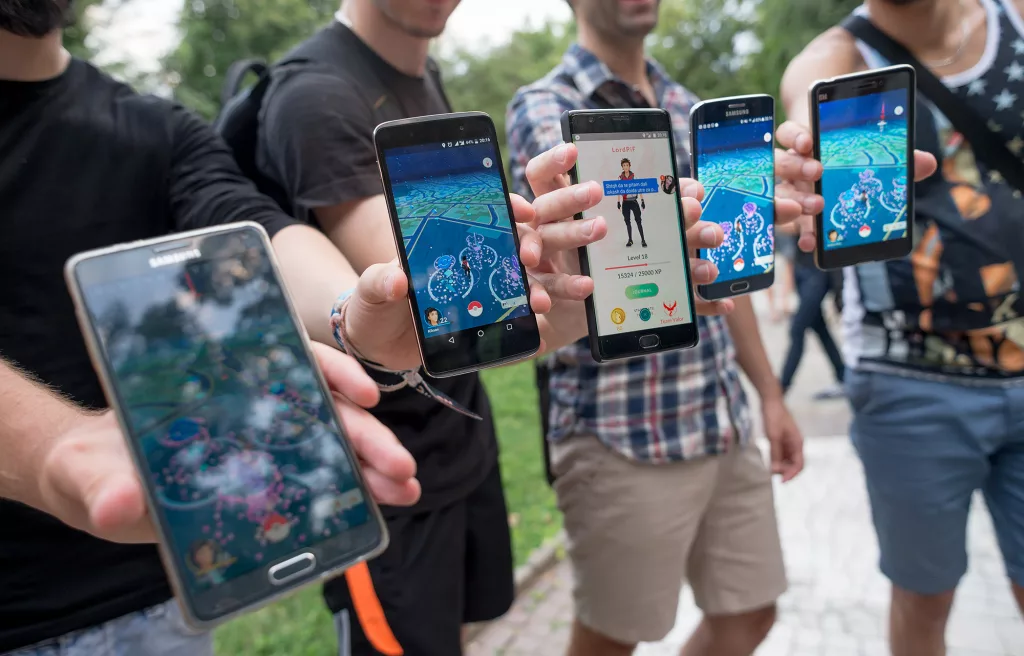Video Gaming Firm Forced to Cut Staff — Despite Cult-like Following for a Franchise that Just Won’t Die
Q: How do get 1,000 Pikachu on an aeroplane?
A: You Pokémon.
Hal Williams reports on the enduring — or is it? — appeal of a video gaming phenomenon…
Pokémon Go has been a mysterious and enduring phenomenon since its release in 2016. It caught like wildfire. It got very big, very fast. It broke the Apple app store weekly download record. It’s been blamed for car crashes, muggings, assaults, relationship break-ups, injuries and fatalities — and not many video games can say that. Or would want to, perhaps.
The point is: Pokémon Go was — some say is — huge.

It’s an augmented reality game; as users travel about in the real word, Pokémon characters appear on a digital map. Get close enough and you can throw poké balls at them in the hope of capturing them. The aim is to collect as many as possible. It may sound humdrum enough to a Boomer, but it became an international sensation before they’d poured the tea.
Google the words “Strange stories Pokémon Go” and you’ll be rewarded with gems such as these (compiled by gameinformer.com, and worth reading in full):
- Woman Gets Stuck in Tree Searching for Pokémon
- Two Guys fall off a cliff while Playing Pokémon Go
- Teens get stuck 100 feet Underground In Caves
- Woman Finds a Dead Body Instead of a Pokémon
- Tons of Pokémon Appear at Holocaust Museum
- People are Naming their Babies after Pokémon
If that last one doesn’t underscore a trend that had become too popular for its own good, the next one does:
- Saudi Arabia Instates Pokémon Go Ban
So: huge, right? But now Pokémon Go maker Niantic is cutting its workforce by 25 percent, closing its Los Angeles studio, and cancelling two games. The reasons? A slowdown in demand, and allowing “our expenses to grow faster than revenue”, as CEO John Hanke put it in a statement. Fear not, Pokémon Go isn’t affected — but it has become less profitable. Revenue flowing from the land of Pikachu, Bulbasaur, Squirtle and the rest has fallen.
That dip, and the Niantic cutbacks, come as a surprise to many, presumably including the 230 people whose jobs will be affected. The gaming industry had been riding a colourful and profitable CGI wave as the perfect antidote to pandemic doldrums. A study found that 82 percent of global consumers played video games or watched video game content at the height of lockdowns. Research by Nielsen Games Video Game Tracking (VGT) confirmed that more gamers were playing, more often. The increase was highest in the US (46 percent), followed by France (41), UK (28) and Germany (23).
The symbiosis between lockdown blues and gaming may have been more important than at first realised. With home imprisonment just another suppressed memory, are we at last wandering, blinking, into daylight, a wee bit sick of screens? The industry must have been hoping that the tsunami of exposure during Covid would lead to new gaming converts, who would then forge ahead with their own digital quests and conquests.
But the line hasn’t held, at least in Niantic’s case. When it comes to launching new games, Hanke has found that things don’t always run smooth. He has called the free-to-play Pokémon Go “a forever game” — and in 2023, it certainly still has followers. Niantic doesn’t release data on that, but Business of Apps estimates that at its peak, it attracted 232 million players. That’s for the first year, 2016, and despite its enduring popularity, it’s been all downhill since. In June 2023, ActivePlayer puts the figure at a mere 79,669,226.
So, uh, still huge. Estimates put Pokémon Go earnings at $703m for 2022, down on 2021’s $877m — and evidently not enough to support games that aren’t cutting it. The recently released NBA All-World and Marvel World of Heroes are gone from the Niantic catalogue.
The Pikachu and their friends? They live on.
For now, at least.
You may have an interest in also reading…
Lord Waverley: Drone Industry Needs a Coherent Voice — and Some Interest From Investors
Drones are changing the way in which we interact with one another. From commercial applications to lifesaving transportation, drones are
Whilst Trade Talks Falter, Brits Celebrate Vaccine First
Mind the paradox. Thanks to EU law, the UK has become the first country to certify for clinical use the
Inclusive Markets Are Not Born: How UNCDF is Supporting Inclusive Digital Economies
Inclusive Markets Are Not Born: How UNCDF is Supporting Inclusive Digital Economies by Advancing the Right Policies and Regulations If

















































































